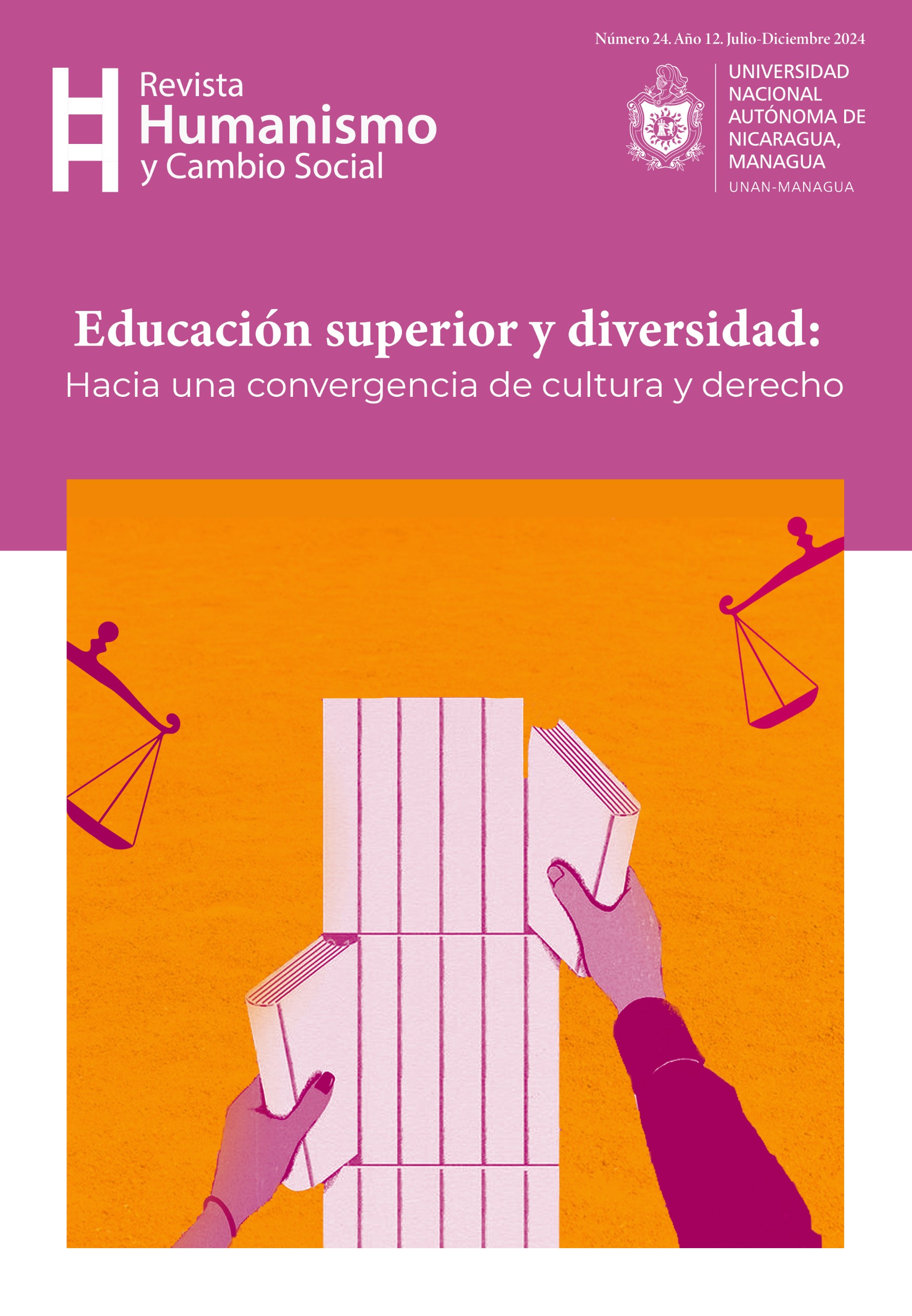Virtualization of the Curricular Component Information Systems and Knowledge Search, in the Information Management Program at UNAN-Managua in the Second Semester of 2022
DOI:
https://doi.org/10.5377/hycs.v1i24.19891Keywords:
Virtual education, Moodle, teaching-learning, virtualizationAbstract
The main objective of this research is the virtualization of the curricular component Information Systems and Knowledge Search through the Moodle virtual environment, aimed at strengthening the teaching and learning process for first-year students in the second semester of 2022, in the Information Management program at UNAN-Managua. To achieve this, the technological infrastructure conditions under which the curricular component is taught in the History Department were identified. The approach of this research is qualitative, with quantitative implications. Interviews and surveys were used for data collection. As part of the results, a high level of acceptance was observed among the authorities of the History Department, faculty, and students regarding the implementation of the virtual modality for this curricular component. As part of the learning strategies, tools offered by Web 2.0 were incorporated, such as: Mindmeister (Mind Maps), Linoit, Padlet,
Mindomo (murals), Canvas, Genially, PicktoChart (infographics, presentations), and Google Docs.
Downloads
References
Correa, J., Bedoya Sierra, M., y Agudelo Alzate, G. (2015). Formación de docentes participantes en el programa de educación inclusiva con calidad en Colombia. Revista Latinoamericana de Educación Inclusiva, 9(1).
Díaz-Barriga, F., & Hernández- Rojas, G. (2002). Estrategias docentes para un aprendizaje significativo. McGraw-Hill. https://buo.org.mx/assets/diaz-barriga%2C---estrategias-docentes-para-un-aprendizaje-significativo.pdf
Esteve Mon, F., & Gisbert Cervet, M. (2011). El nuevo paradigma de aprendizaje y las nuevas tecnologías. Revista de Docencia Universitaria - REDU, 9(3). https://doi.org/10.4995/redu.2011.6149
Fernández, C., & Montes, M. (2006). Aspectos a garantizar en la confección de cursos virtuales | Enhanced Reader. moz-extension://5547ffab-60dc-4a54-9e4a-21d79a5b80a8/enhanced-reader.html?openApp&pdf=https%3A%2F%2Fwww.redalyc.org%2Fpdf%2F3783%2F378343631009.pdf
Hernández-Sampieri, R., Fernández-Collado, C., & Baptista-Lucio, P. (2014). Metodologia de la investigación (6ta ed.). McGrawHill. http://observatorio.epacartagena.gov.co/wp-content/uploads/2017/08/metodologia-de-la-investigacion-sexta-edicion.
compressed.pdf
Rodríguez, M. (2008). Una estrategia para el diseño e implementación de cursos virtuales de apoyo a la enseñanza semipresencial en la carrera de economía de la Universidad de Camagüey. [Tesis para optar al grado de doctor] Universidad de Camagüey.
Saza, I. (2018). Propuesta didáctica para ambientes virtuales de aprendizaje desde el enfoque praxeológico. Praxis y Saber, Vol. 9 (20), 217-237 https://www.redalyc.org/jatsRepo/4772/477257681010/html/index.html
Downloads
Published
Issue
Section
License

This work is licensed under a Creative Commons Attribution-NonCommercial-ShareAlike 4.0 International License.




